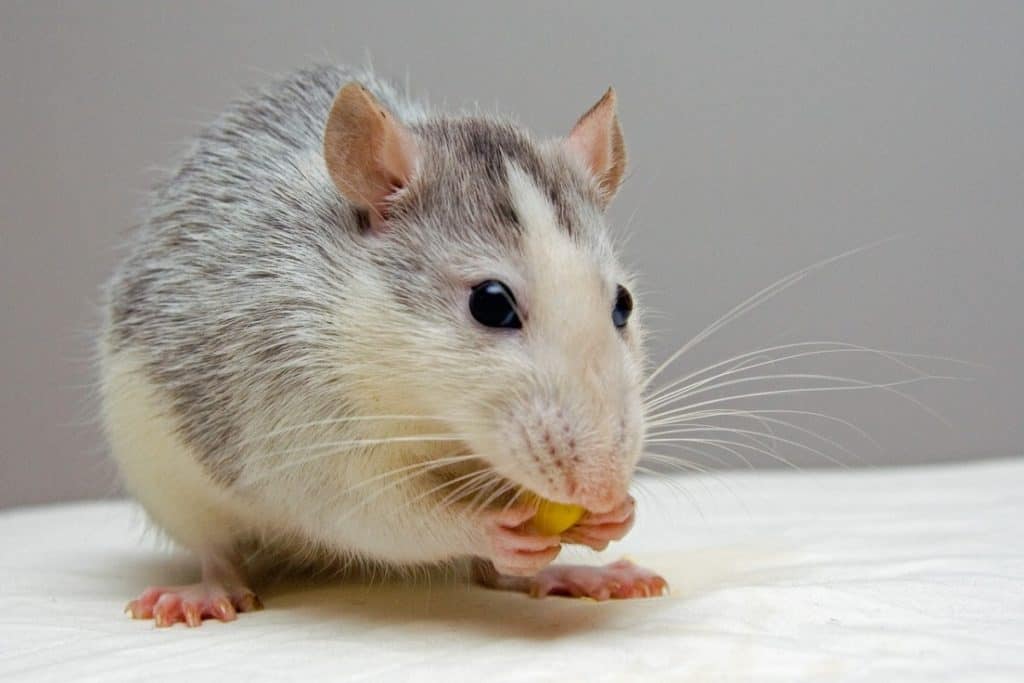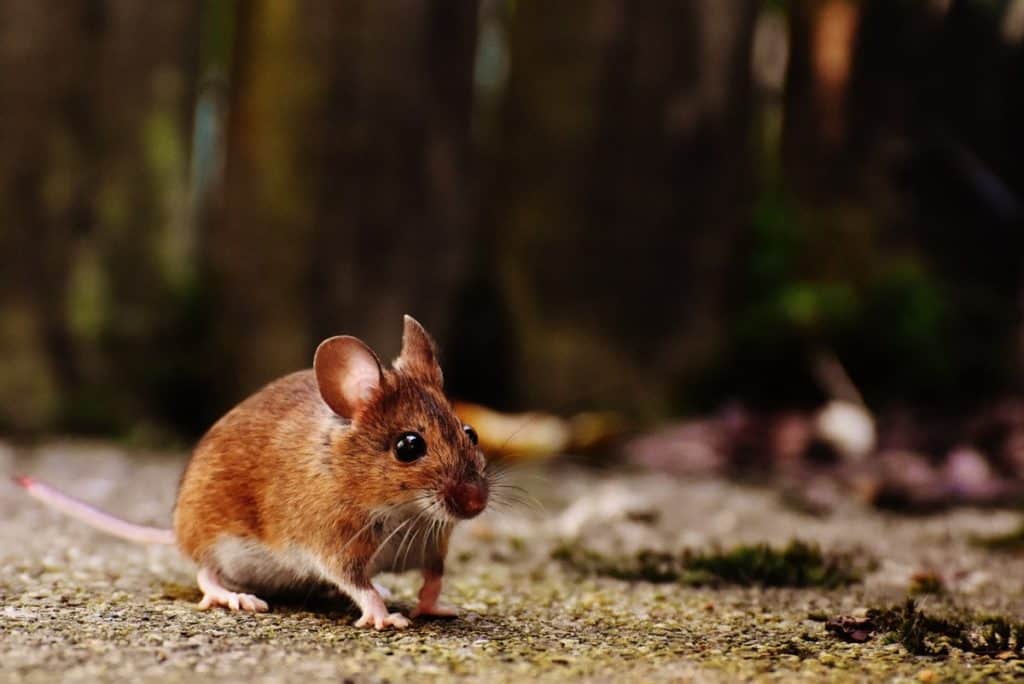
So, you are wondering if mice are either omnivores, herbivores, or carnivores. In this article, you’ll find the answer to this question and I’ll also answer a few more closely related questions after I’ve given you the answer to the main question, so make sure you keep on reading this article till the end.
Are mice omnivores, herbivores, or carnivores? A mouse is considered an omnivore because it’ll eat anything where they come into contact with. These foods range from fruits to nuts to plants and even bones of dead animals. So, it can be said that mice are scavengers.
Since mice have voracious appetites, they can be seen scampering in yards and homes, searching for anything edible. Although mice have been stereotyped as cheese lovers, you can be sure that they won’t prefer cheese over all the other foods.
The smell of cheese is a bit too strong for their sensitive noses. They do love peanut butter, however, and a lot of other foods we humans like, is a gourmet meal to them.
Why are mice classified as omnivores?
Mice are considered omnivores because they will both eat plant-based foods and meat-based foods. Their diet consists of anything edible. This includes paper or cardboard that has a food smell on it. Mice will even eat rotten food, including meat scraps. Nothing edible escapes their sensitive noses.
This is also the reason why a lot of human homes have mice in them as mice love to eat all the foods that we humans like as well. Therefore, if you want to get rid of mice in and around your house then you should make sure that there isn’t any food lingering in and around your home.
Why are mice not classified as herbivores?
A herbivore is strictly a plant-eater. Since mice eat various foods, they do not restrict their diet to just plant-based foods. This is the reason why mice are not classified as herbivores but as omnivores.
Restricting their diet to vegetation would not be feasible for a mouse. In winter, most vegetation becomes scarce. Even though mice stockpile food, vegetation would not stay fresh enough to feed a colony of mice. Therefore nature adapted them to eat both plant-based foods and meat-based foods.
Why are mice not classified as carnivores?
Carnivorous animals are strictly meat-eaters. Mice are classified as omnivores since mice eat plant-based foods and because they also eat the meat of other animals. Therefore mice are not considered carnivores.
In extreme instances when there is no food, they will resort to cannibalism. A mother will eat her babies, and grown mice will chew on their tails. This is extremely rare, though.
Mice go to great lengths to search for a food supply. They have very sensitive noses and rely on their sense of smell to track a food source. They especially like chocolate and peanut butter. Bird food, pet food, and cereal are also at the top of their grocery list.
Also, mice do have a taste for certain protein sources. They will eat crickets, roaches, worms, snails, and even centipedes.
If you can’t get enough of learning about mice then I encourage you to check out the “Mice Category Page” which consists of various articles that give answers to mouse-related questions.
Are kangaroo mice herbivores?
Kangaroo mice mainly eat plant-based food sources like, for example, nuts, seeds, and grains. But kangaroo mice also love to eat insects which results in them not being classified as herbivores because insects are animals. They are, therefore, classified as omnivores.
Since they thrive in the desert where plants are scarce, they eat a diet of mainly dried seeds. Remarkably, they do not need to drink water. Instead, they rely on the moisture that they derive from the seeds they ingest and also from the insects they eat.
They are a nocturnal species, foraging under the cover of darkness. When they come across a food source, they stuff it in their cheek pouches and scamper back to the burrows to eat it.
Their diet consists mainly of mesquite beans and seeds of the native grasses in their habitat. They will also eat the seeds from creosote bushes and weeds. Their front teeth are adapted to husk the seeds.
Are wood mice herbivores or omnivores?
Wood mice are not herbivores. Their diet consists of a variety of foods. They are therefore considered omnivores. You’ll often see them eating various types of berries and fruits. They also love to eat insects like small snails.
If they happen to run into some edible fruit then they prefer to leave the flesh of the fruit and eat only the pits. During the winter months, they will seek out hibernating bats as they can be a quick and easy meal for them.
Are golden mice herbivores?
Golden mice are not herbivores, they are omnivores. Their diet, however, is made up mostly of seeds. They prefer to eat berries, seeds, fruits, leaves, and various insect species. The kind of berries that they love come from dogwood, wild cherry, blackberry, and Greenbriar plants.
Besides them having a furious eating habit, they generally won’t live that long (on average 6.5 months). So, you can be sure that they are going to enjoy themselves whenever they happen to run into some food.

Are white-footed mice herbivores?
White-footed mice eat a variety of foods and are therefore not considered to be herbivores but omnivores. Their main diet consists of seeds, berries, nuts, fruits, and insects. They will also eat wood, bark, leaves, flowers, and they love to eat harmful insects such as gypsy moths.
The majority of the foods that they find during the fall will be stored as they are a species that do not hibernate during the cold winter months.
Are western harvest mice herbivores?
The western harvest mouse eats various foods, including various insect species, and is therefore considered an omnivore and not a herbivore. Their diet consists mainly of vegetation found in their habitat. This is usually composed of seeds, leaves, and grass stems.
They will, also, occasionally eat grasshoppers, crickets, beetles, and they also like vetch, oats, bluegrass, and fescue. They gather their food in late summer and during the fall and store it in long tunnels underground to prepare for winter.
Are meadow jumping mice herbivores?
The meadow jumping mouse eats a variety of foods, therefore, they are considered omnivores and not herbivores. As they emerge from hibernation in the spring, they will eat mostly insects and worms because there will be loads of them.
They will also seek out seeds and fungi. As the seasons change, the mice will eat more seeds and fungus and fewer insects. They will also seek out berries and fruits, and they may play a role in spreading the seeds of some of the plants they eat.
Are field mice herbivores?
Field mice are omnivores, not herbivores since they eat a variety of foods. Field mice inhabit forests, grasslands, and fields. Their diet consists mainly of seeds in and around their habitat. They also feed on grasshoppers, moths, spiders, and caterpillars.
Besides them having rich eating habits, field mice are also very intelligent animals. Research has shown that their intelligence is pretty much equal to that of dogs.
Are grasshopper mice herbivores?
Grasshopper mice are not herbivores. Almost 90 percent of their diet consists of eating other animals. They mainly eat insects, and they have been known to eat other mice species as well. Also, as you can tell from reading their name, you can be sure that they love to eat grasshoppers as well.
Besides grasshoppers and various other insect species that they love to eat, you’ll also find them eating small bird species and small lizard species.
Check out the video below if you want to find out a bit more about grasshopper mice.
Conclusion
As we have discovered, mice species vary in their eating habits. Some are mainly focused on eating plant-based foods while other species will choose a tasty insect over some fruit. They are as diverse in their eating habits as humans, and therefore will always be around lurking in our houses.
